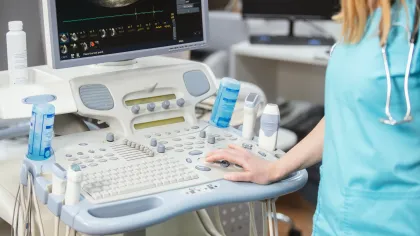Bladder Cancer
Advanced technology provides the best outcomes with minimal side effects.
The Best Treatment
For Bladder Cancer
FIGHT CANCER WITH THE BEST TEAM, AMAZING TECHNOLOGY, AND GREAT OUTCOMES.
Our treatments have incredible precision and pinpoint accuracy that results in minimal sexual and urinary side effects. Most treatments are done as an outpatient in our state of the art surgery centers with the best outcomes. If you have been diagnosed with bladder cancer or think you may have bladder cancer, you owe it to yourself to see the most caring and skilled urologic oncologists at Advanced Urology.

Advantages Of Advanced Bladder Cancer Treatments
Better Outcomes & Less Side Effects
Common Signs and Symptoms of Bladder Cancer
If any of these symptoms occur, especially the presence of blood in the urine, talk to a bladder cancer doctor immediately. Early detection of bladder cancer can improve treatment outcomes and prognosis.
-
Blood in the Urine (Hematuria)
-
Frequent Urination
-
Pain or Burning Sensation During Urination
-
Urgency to Urinate
-
Lower Back or Pelvic Pain
-
Difficulty Urinating
-
Fatigue or Weakness
-
Unexplained Weight Loss
Schedule Appointment Online
Advanced Bladder Cancer Treatment Options
- Intravesical Therapy - Several medicines including BCG, mitomycin, and Valstar can be given inside the bladder to help prevent cancer from recurring or progressing. This is done in the office with a catheter in the bladder. Because the medicine is instilled directly in the bladder, common side effects include mild burning with urination and frequency of urination. Importantly, these medicines do not cause nausea, vomiting, and hair loss associated with typical cancer chemotherapy regimens. Patients can be given oral sedation if necessary which makes the procedure much more comfortable.
- Keytruda Intravenous Therapy - KEYTRUDA may be used when your cancer has not spread to nearby tissue in the bladder, but is at high-risk for spreading (high-risk, non-muscle invasive bladder cancer [NMIBC]) and when your tumor is a type called "carcinoma in situ" (CIS), and you have tried treatment with Bacillus Calmette-Guerin (BCG) and it did not work, and you are not able to or have decided not to have surgery to remove your bladder.
- Radical Cystectomy - In cases of aggressive cancer, surgery for curative intent is encouraged. At Advanced Urology we have the most experienced private surgical oncologists in Georgia who specialize in this surgery with enhanced recovery and great outcomes.
- Advanced Robotic Surgery - Robotic surgery is a great option for entire bladder, prostate gland, and lymph node removal for high volume or more aggressive cancers. This often has the highest cure rate for cancer compared to radiation treatment. Robotic surgery is done through 6 small incisions as an outpatient. Benefits of surgery include lymph node removal, more accurate staging, higher cure rates, and the option to add radiation after surgery if needed.
- Advanced Bladder Cancer Medicines - We have the latest medicines for bladder cancer including Keytruda or Pembrolizumab. Our world class urological oncologists lead or Advanced Bladder Cancer Clinic and Clinical Trials. Medicines are conveniently dispensed from our pharmacy.
Radiation seems to be an easy choice initially, but it has tremendous side effects in future years including bladder cancer, rectal cancer, radiation burns to the bladder and rectum, and urethral stricture disease. Proton therapy is another form of radiation and there is little to no long term data supporting its supposed superiority over traditional radiation. We have targeted and precise therapies for localized bladder cancer with great results and minimal risk of sexual and urinary dysfunction. These options are tried, true, and proven.
3 Step Journey To Success

Initial Visit

Comprehensive Review

Surgery
Schedule Appointment Online
Frequently Asked Questions (FAQs) About Bladder Cancer
Q Can bladder cancer recur after treatment?
Yes, bladder cancer has a relatively high chance of recurrence, even after successful treatment. Regular follow-up appointments and routine tests, such as cystoscopies and urine tests, are essential to monitor for any signs of the cancer returning. Lifestyle changes, including quitting smoking and maintaining a healthy diet, may help reduce the risk of recurrence.
Q How is bladder cancer diagnosed?
Bladder cancer is diagnosed through a combination of tests, including a urinalysis to check for blood or abnormal cells, a cystoscopy to examine the inside of the bladder using a thin camera, and imaging tests such as CT scans or ultrasounds to identify tumors. A biopsy may also be performed to confirm the presence of cancer cells.
Q What are the risk factors for developing bladder cancer?
Several factors can increase the risk of developing bladder cancer, including smoking, exposure to industrial chemicals (such as those used in dye manufacturing), chronic bladder infections, a history of radiation therapy to the pelvic area, and certain genetic factors. Men and individuals over the age of 55 are also at a higher risk.
Q Are there different types of bladder cancer?
Yes, bladder cancer can be classified into different types based on the cells where the cancer begins. The most common type is urothelial carcinoma (also known as transitional cell carcinoma), which starts in the cells lining the bladder. Other less common types include squamous cell carcinoma, which can develop due to chronic irritation or infections, and adenocarcinoma, which originates in the glandular cells of the bladder. The type of bladder cancer can influence treatment options and prognosis.
